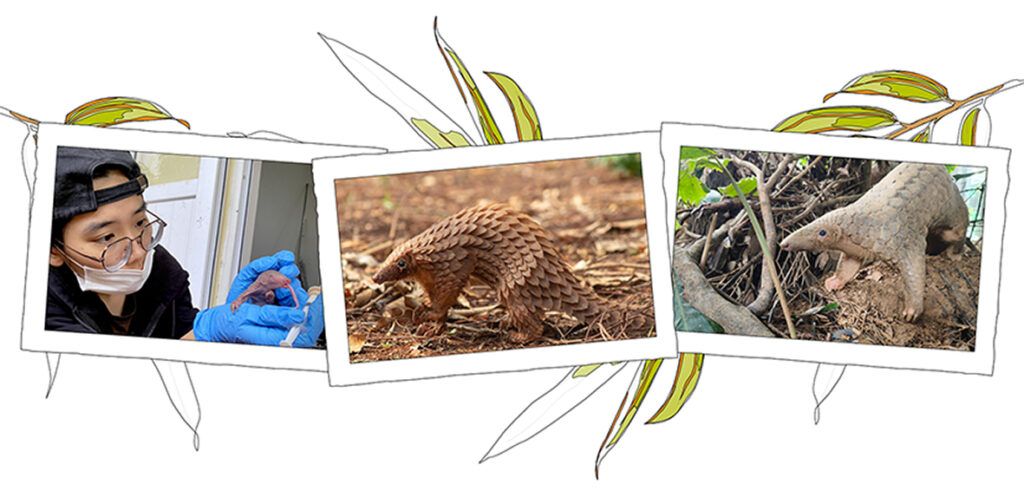Pangolin appeal
Make your donationPlanning for pangolins
Pangolins are one of the world’s most trafficked animals. They’re also at risk of extinction. We’re funding two different projects, helping both pangolins in the wild, and those in captivity.
Pangolins in Vietnam
Vietnam’s forests are home to Chinese and Sunda pangolins. Sadly, around 100,000 pangolins are thought to be poached every year and illegally sold as meat, traditional medicine, pets and souvenirs. Some pangolins are rescued, often dehydrated, injured and malnourished. But because they’re considered ‘evidence’ by the courts, and investigations into illegal trafficking rings can last several months, pangolins can end up spending long periods in captivity. They’re then often released straight back into the forest without health checks. Being in captivity for so long without specialised care means they’re less likely to survive once released.
We’re funding Save Vietnam’s Wildlife which is improving the lives of pangolins in captivity. Save Vietnam’s Wildlife staff are caring for pangolins at two rescue centres. With our funding, they’re improving how pangolins are cared for to ensure wild behaviours are maintained, and the survival rate of babies born in captivity improves. The team is looking at the maximum time pangolins should be kept captive, and training staff on how to best care for adults, pregnant pangolins and their pups. They’re amending what the pangolins eat, to better match what they eat in the wild, and adding enrichment to their enclosures. This will help maintain pangolins’ wild behaviours and reduce their stress, giving them a better chance of survival when released.
Excitingly, Save Vietnam’s Wildlife is also establishing the first Chinese pangolin Conservation Breeding Centre. This project will help pangolins in captivity be successfully released to the wild, and increase the chances of a successful breeding-for-release programme.

Pangolins in Ghana
The Guinean Forest Biodiversity Hotspot (GFBH) is a critical forest habitat which covers eleven countries in Central and West Africa, including Ghana. White-bellied, giant and black-bellied pangolins live here, but logging, agriculture, forest fires, illegal mining and urbanisation are destroying their forest habitat. And though legally protected from hunting in Ghana, pangolins are still frequently poached. Pangolins in Ghana haven’t been a conservation priority compared with animals like elephants and chimpanzees, so we don’t have enough data on their population, where they live and the habitat they prefer.
We’re funding Threatened Species Conservation Alliance to fill in the knowledge gaps about pangolins. Using existing data, traditional knowledge and new surveys, they’ll identify pangolin hotspots in the forest and predict where pangolins could be living in unexplored areas. Knowing more about their numbers and where they live will make it easier to protect them from poachers. A new plan for pangolin conservation in West Africa is about to be published, so it’s vital to have accurate information on the true status of pangolins in Ghana.
Thank you.
Photo credits Ari Asp999, shutterstock.com, Prince Pascal Agro, Save Vietnam’s Wildlife.

